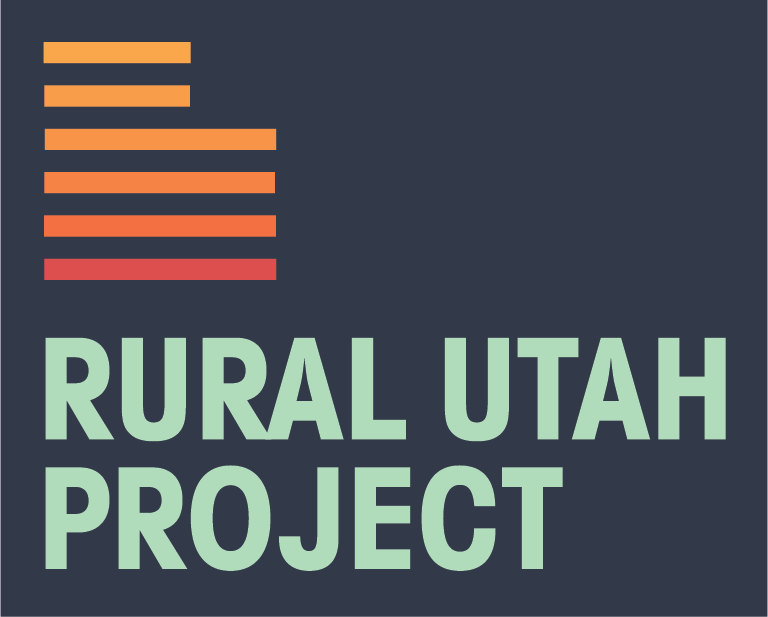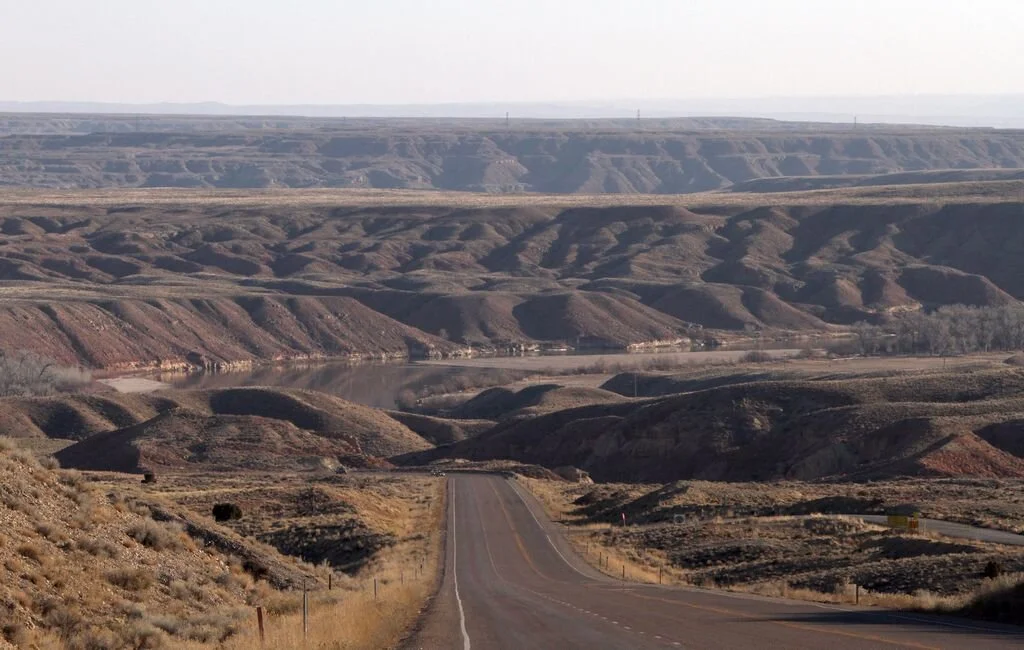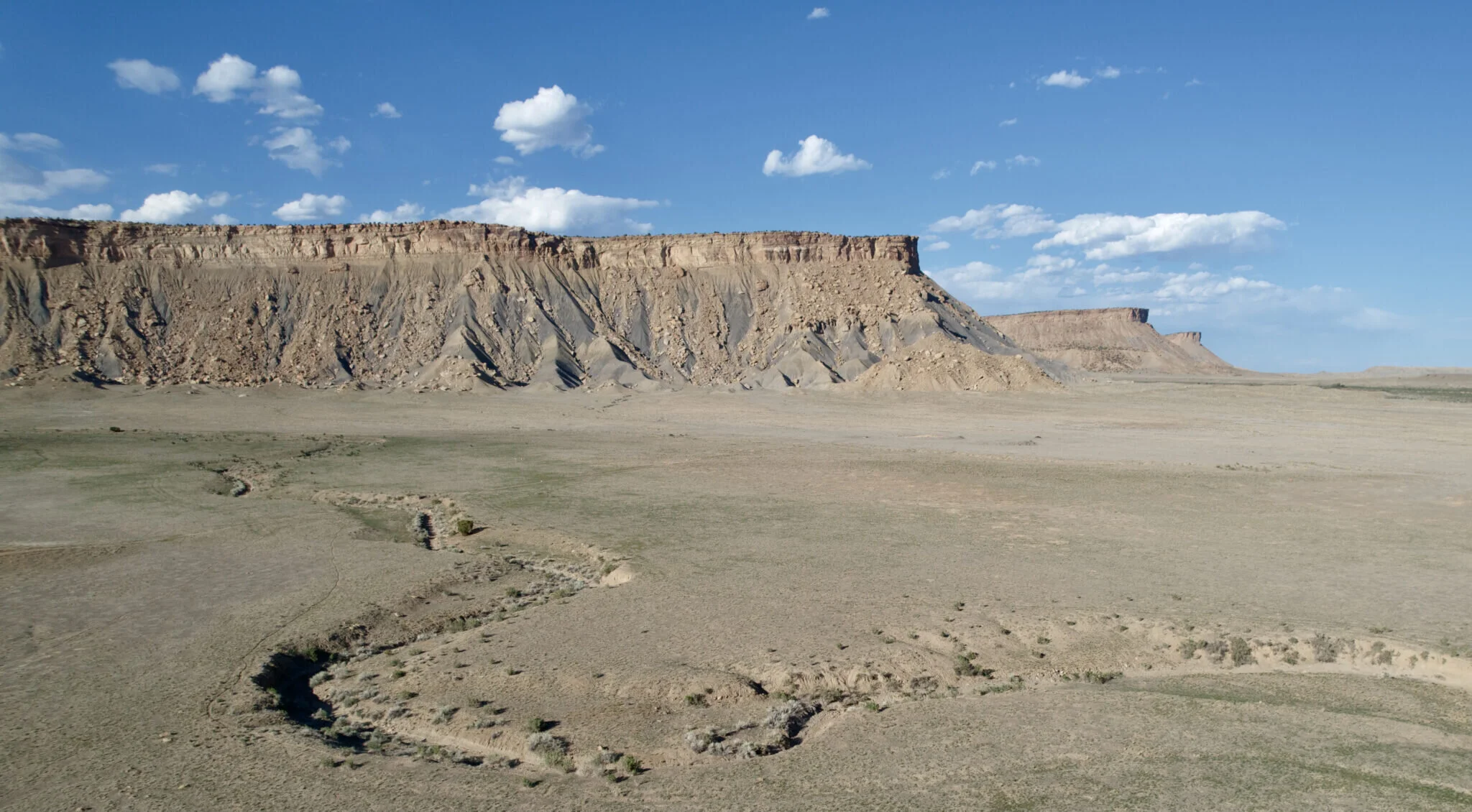
We saved the Book Cliffs!
Thanks to your advocacy and activism, the Seven County Infrastructure Coalition has voted to cease the planning process for the Book Cliffs Highway.
Welcome to the long haul.
We’ve fought the Book Cliffs Highway for 30 years. We aren’t backing down.
They want to put a highway where exactly?
Supporters of this highway claim it will save 30 minutes of driving time between Vernal and Moab – and those 30 minutes are somehow worth at least $200 million of taxpayer dollars, the destruction of wildlife migration corridors, and the peril of unique rock art and cultural artifacts.
Tell Governor Cox and the Seven County Infrastructure Coalition: Stop the Book Cliffs Highway
A proposed highway through Eastern Utah’s Book Cliffs has yet again been reactivated by the Seven County Infrastructure Coalition despite being rejected by local communities for more than 30 years.
The SCIC’s preferred route down East Canyon
As residents of Utah, we are uniting our voices in opposition to the proposed Book Cliffs Highway, which would cut an industrial corridor through rugged and wild lands between the Uinta Basin and I-70. This remote area is prized by big game hunters.
The Book Cliffs Highway is being promoted by the Seven County Infrastructure Coalition (SCIC) despite firm opposition from Grand County, where the highway would be located.
Here’s why the Book Cliffs Highway is a bad deal for rural Utahns:
The construction of the highway is infeasible and expensive. The Book Cliffs region is especially rugged country. Narrow and steep canyons with grades up to 18%, unstable geology, and the fact that the road would run through a narrow drainage that regularly experiences flash floods would necessitate unreasonably high engineering and construction costs. The SCIC claims the initial build would cost around $190 million, though that number could easily double or triple. And, even if the SCIC fully covers the estimated $1.4 million in yearly maintenance costs, Grand County will be on the hook for increased law enforcement and emergency services in the area.
The highway would destroy historic property. At the mouth of East Canyon, the base of the highway’s proposed route, sits Three Canyons Ranch. This historic property features petroglyphs estimated to be 8-10,000 years old as well as 19th century inscriptions left by Antoine Robidoux and other frontiersmen. To build the highway through East Canyon, the State would have to enact eminent domain and forcibly seize lands from a family of ranchers.
Roadkill would skyrocket and trophy hunting would cease. The Book Cliffs region is a crucial migratory pathway and permanent home to big game populations, including elk, pronghorn, mule deer, bison, and Rocky Mountain bighorn. These species have already been threatened by the expansion of Seep Ridge Road and the present loss of sagebrush habitat. Utah Division of Wildlife population estimates already place the Elk population 30% below target objectives, and the Deer population 50% below target objectives. As a result of the highway, an additional 138 mule deer, 5 elk, 1 mountain lion, and 1 black bear would be killed each year.
The costs far outweigh the “benefits.” Grand County alone sees over three million tourists per year. A study paid for by the SCIC suggests the Book Cliffs Highway would only bring an additional 60,000 tourists annually. On top of that, the proposed highway would only save tourists traveling from Vernal to Moab a mere 15-25 minutes. In terms of potential industrial benefits, the study estimates a measly 0.1% increase in induced energy production. Are these “benefits” really worth hundreds of millions of public dollars? Both the SCIC and Grand County’s goals could be achieved by improving the existing route through Carbon & Emery Counties, shortening travel time without causing undue ecological harm.
The Book Cliffs Highway is a financial and environmental disaster that disregards local control, tramples property rights, and blatantly wastes public dollars for little value in return. To Governor Cox, the Utah Legislature, the Bureau of Land Management, and the Seven County Infrastructure Coalition: Stop the planning of this ill-advised and economically insecure highway, stop the misuse of public funds, and listen to the voices of local communities. Stop the construction of the Book Cliffs Highway.
Sign our Petition to Save the Book Cliffs
Urgent! Utah lawmakers are attempting to pass legislation that would fund fossil fuel infrastructure like the Book Cliffs Highway with taxpayer money. Join us in telling them to scrap this bill.
State Bill 51 was originally written to dictate emissions test requirements for cars more than 30 years old. Using this innocuous, even positive legislation as a Trojan Horse, Sen. Wayne Harper (R - Salt Lake) has rewritten it to fund projects like the Book Cliffs Highway with Community Impact Board (CIB) money through the Throughput Infrastructure Fund.
This fund could be mitigating the effects of fossil fuel extraction in our state. Instead, SB51 would redirect it to wasteful & needless projects like the Book Cliffs Highway.
The Save the Book Cliffs Coalition
-
Mary McGann
Chair, Grand County Commission
-
Trish Hedin
Grand County Commissioner
-
Lee & Deb Elmgreen
Owners, Three Canyons Ranch
-
Emily Niehaus
Mayor, Moab City
-
Anthony Mancuso
Southeast Utah Board Member, Backcountry Hunters & Anglers
-
Jazmine Duncan
Mayor, Castle Valley Town
-
Tory Hill
Castle Valley Town Council / Treasurer
-
Michelle Goldsmith
Helper City Council Member
-
Layne Miller
Price City Council Member
-

Rural Utah Project
-

Center for Biological Diversity
-

Southern Utah Wilderness Alliance
-

Living Rivers
-

Town of Castle Valley, Utah
-

Town of Dinosaur, Colorado
-

Town of Rangely, Colorado

Book Cliffs Highway in the news









